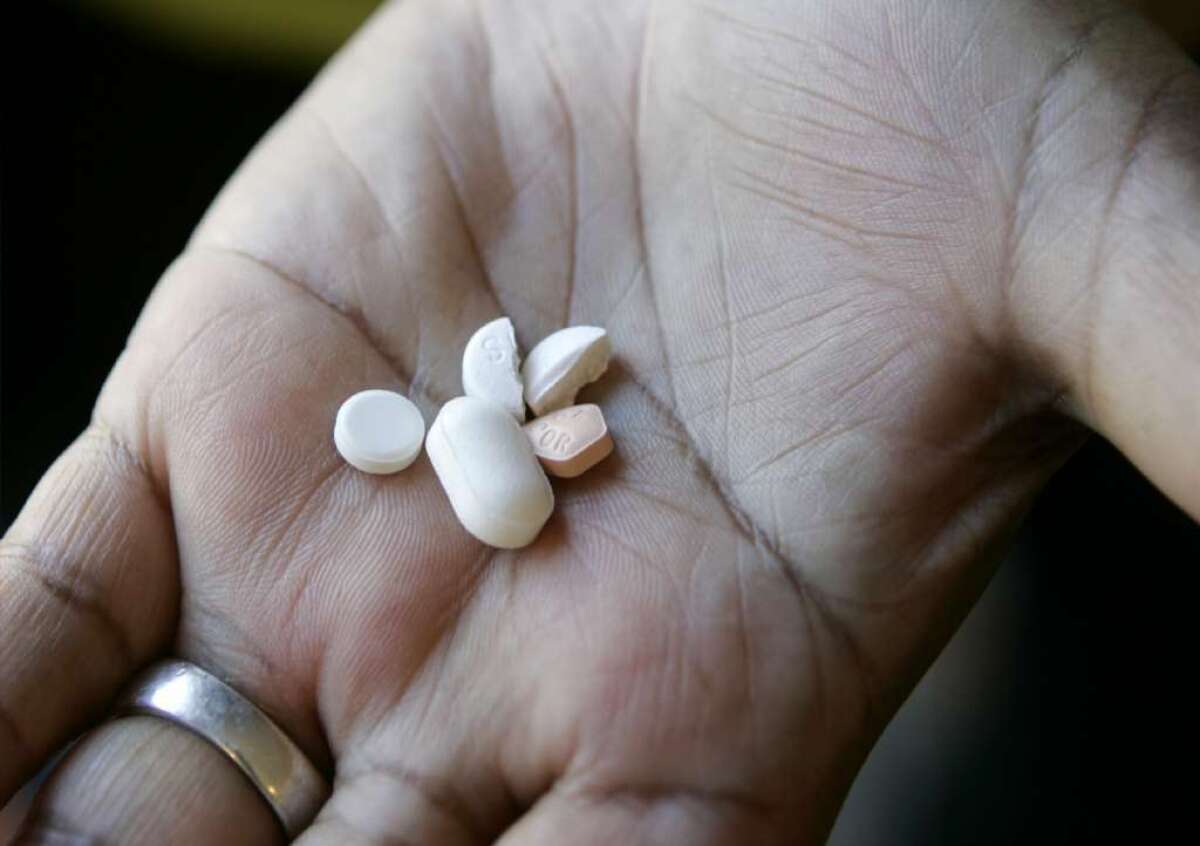Taking blood pressure drugs at night wards off diabetes, study finds

A new study found that those who treated their blood pressure by taking their medications at night were less likely to develop diabetes than those who took their pills in the morning.
Sometimes, disease-prevention really is this simple: Adults with high blood pressure who take all of their hypertension medications before they go to bed, rather than in the morning, are less likely to develop Type 2 diabetes, new research has found.
The new findings are in line with other insights gleaned by the same investigators: that hypertension patients who are most at risk of developing diabetes -- and cardiovascular disease -- are those whose blood pressure fails to show a substantial dip during sleep.
It stood to reason, then, that a medication regimen that more tightly controls a hypertensive’s blood pressure while he or she sleeps might help to at least forestall the development of Type 2 diabetes.
In a large clinical trial conducted in Spain and published Wednesday in the journal Diabetologia, that hypothesis turned out to be true. And effecting such tight nighttime blood-pressure control turned out to be as simple as having subjects take their hypertension drugs -- whether ACE inhibitors, angiotensin-receptor blockers or beta blockers -- before they turned in for the night.
A drop in blood pressure is normal while sleeping. But not all people see such a dip while they sleep, and some see more shallow dips.
A second trial, also published in Diabetologia on Wednesday and conducted by the same group of Spanish researchers, found that subjects whose blood pressure did not dip, and those whose readings dipped more briefly or shallowly, were more likely to develop Type 2 diabetes than those whose sleep-time blood pressure saw a deep and sustained drop from daytime levels.
The interim effects of taking blood pressure drugs at night were quickly clear to see: Those taking their medications at night saw, on average, steeper and more sustained drops in blood-pressure readings while they slept, compared with those who took their drugs in the morning.
And there were no more medication-related complaints among nighttime takers than among those who took their medications in the morning.
The differing outcomes over time were just as dramatic. Followed for close to six years, 12.1% of the 1,029 subjects who were randomly assigned to take their meds in the morning developed Type 2 diabetes, compared with 4.8% of the 983 who took their meds at night.
After accounting for other factors that can influence a person’s likelihood of developing diabetes -- including waist circumference, an individual’s fasting glucose and whether or not he or she had chronic kidney disease -- the researchers concluded that shifting medication-taking from morning to night drove down the average subject’s likelihood of developing diabetes by 57%.
UCLA endocrinologist Matthew Freeby, who was not involved in the latest studies, called the trial “very well done,” and its findings “compelling.”
The new research accords with a welter of new research finding that sleep and circadian rhythms play an outsized role in a person’s risk for developing diabetes. Those with disrupted sleep patterns due to chronic sleep shortage, obstructive sleep apnea or shift work have been found much more likely than good sleepers to develop diabetes.
Freeby said it was particularly striking that the protective effect of taking medications at night could be seen in subjects regardless of which class of blood-pressure drugs they took. Other research has suggested that ACE inhibitors may be less effective in preventing the transition to diabetes in those with high blood pressure, but the current study found it just as effective, if taken at night, as other classes of medication.
“I would absolutely consider” suggesting a patient switch to taking medications at night, said Dr. Freeby, an assistant professor of endocrinology, diabetes and hypertension at the David Geffen School of Medicine.
Follow me on Twitter @LATMelissaHealy and “like” Los Angeles Times Science & Health on Facebook.







